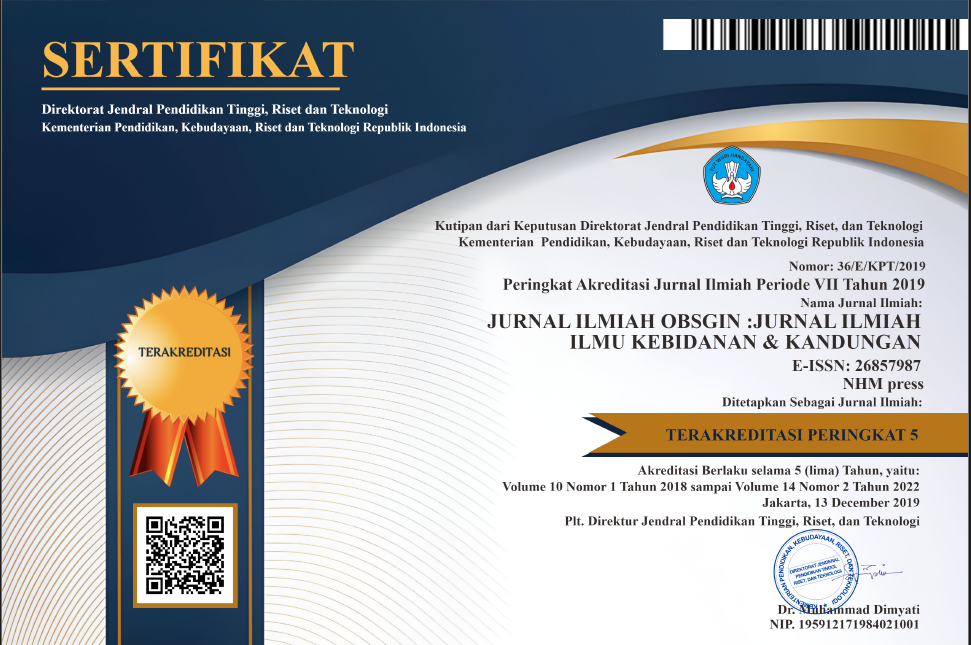PENGARUH PEMBERIAN SUPLEMEN KALSIUM DALAM PENCEGAHAN PREEKLAMPSI PADA IBU HAMIL TRIMESTER 2
Abstract
During pregnancy, the need for increased
calcium intake. Adequate calcium intake can reduce
the risk of preeclampsia. the survey results of
preliminary studies in
Polindes Asemjaran Banyuates over the past
three months, Found that three pregnant women
detected preeclampsia from a total of 57 pregnant
women (5.26%). The purpose of the study to analyze
the effectiveness of calcium in pregnant women to
preventing preeclampsia in the working area of
Polindes Asemjaran Banyuates.
The research design used was Quasi
Eksperimen with Non Equivalent Control Group
approach. The independent variable is Calcium
Supplementation and dependence is the Occurrence
of Preeclampsi on Trimester 2 Pregnant Woman. The
sample of this study is trimester 2 pregnant women
who are at risk of experiencing preeclampsia that
meet the criteria. The instrument was used the
observation sheet, and analyzed using Parametric
Test if qualified and non-parameteric test if not
qualified with a 0.05.
The result of statistical test in both dose group
500 mg and 1000 mg with Paired T-Test was
obtained p value (0,941)> α (0,05) in 500 mg dose
group and Wilcoxon Signed Rank Test result p value
(0,105) > a ( 0.05) at a dose of 1000 mg the meaning
s H1 and H2 are rejected, there is no difference
before and after given calcium supplement dose 500
mg or 1000 mg to prevent preeclampsi. While in the
posttest test with Mann Whitney Test in both groups
obtained results p Value (0.105)> α (0.05), it can be
concluded that supplementation of calcium dose 500
mg and 1000 mg not effective to prevent
preeclampsia.
Calcium supplementation of 1000 mg and 500
mg doses has not been proven statistically effective
n preventing preeclampsia. Further research is
recommended to increase the number of samples, so
that the research results will be visible and can be
generalized to all pregnant women.











